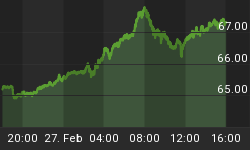The pandemic has given greater impetus to the phenomenon of young adults living with their parents, even post-college, and for once, it doesn’t necessarily mean you’re a creep.
If you’re a parent with a young adult, you’re probably wondering if you’ll ever be an empty-nester. In today’s atmosphere, your time with your kids is likely to be prolonged.
Currently, more than half of American young adults live with their parents, a level last seen during the Great Depression. In 2007, before the recession, only 28% lived in their parents’ home.
With many college campuses and offices closed, that age group has been forced to move back home and study or work remotely.
According to a study by the Pew Research Center, some 52% of adults aged 18 to 34 now live at home with their parents, up from 47% in February.
Those numbers suggest that quite a few have actually returned home after spending a few months out on their own, amid a pandemic.
The Pew report noted that prior to 2020, the highest measured value was in the 1940 census at the end of the Great Depression, when 48% of young adults lived with their parents--and when it was more of a cultural norm, as well.
“The number of young adults living with parents grew to 26.6 million in July, an increase of 2.6 million from February,” Pew said, noting one significant change: The trend is closing racial and ethnic gaps.
The pandemic alone is not, of course, to blame. There are a number of factors that have been building to prompt young adults back home.
For one thing, they’re struggling under the massive weight of student loan debt. That burden becomes much greater amid wage stagnation, an economic recession stage and pressure to self-fund their retirement.
Another factor playing a key role is the trend to postpone marriage.
And, of course, it’s nice to prolong financial support from mom and dad, too.
The Pew study found that more than half of parents with children between the ages of 18 and 29 have given them some form of financial help in the past year. This is now the millennial way.
Millennial finances took a hit in the 2008/2009 financial crisis, and the high costs of education continues to take its toll.
According to a recent Bank of America survey, 16% of millennials now have savings of $100,000 or more. That’s double the amount of young people who had saved that much in 2015.
But it also suggests that almost 95% of millennials aren’t saving enough for retirement, with just over one-third participating in employer-sponsored retirement plans.
According to the National Institute on Retirement Security, 66% of Americans between the ages of 21 and 32 have nothing saved for retirement.
In the meantime, staying at home is becoming more attractive in light of an Urban Institute report showing that Millennials are getting shut out of the housing market. Their homeownership rate is 8% lower than that of the two previous generations.
At this rate, many millennials think they’ll be working until they die. A third of millennials don’t think they’ll ever be able to retire, and a third regret the money they spent on college or house mortgage. They’re probably also wondering if they’ll be living with their parents forever, and if not, their younger siblings just might.
On average, millennials start saving for retirement at age 24. Gen Xers started at age 30, and Baby Boomers—despite all their wisdom—didn’t start until age 35. Despite that, Millennials have less wealth than their parents.
According to a study by MagnifyMoney, back in 1998, the average household aged 20-35 had a net worth of $103,400 compared to an average net worth of $747,600 for a household aged 52-70 years, or 7x bigger for the older generation.
Fast forward to the present, and the gap has widened to 12x with the younger generation boasting an average net worth of just $100,800 vs. $1,210,100 for the older group. In other words, you live where the money is, and it’s not with the younger generations.
By Josh Owens
















